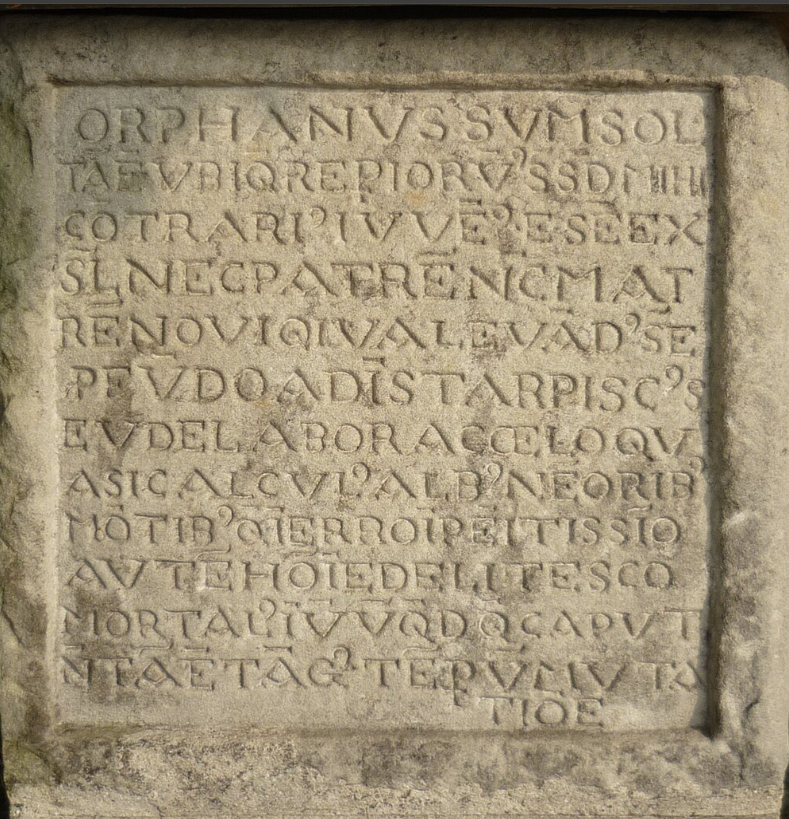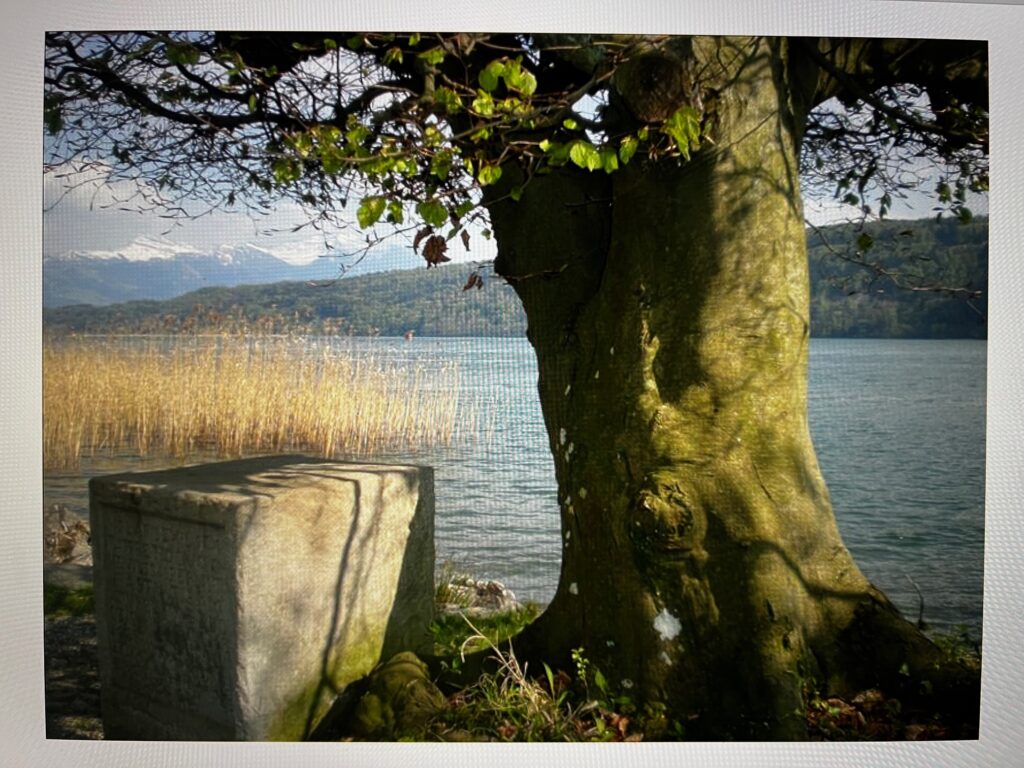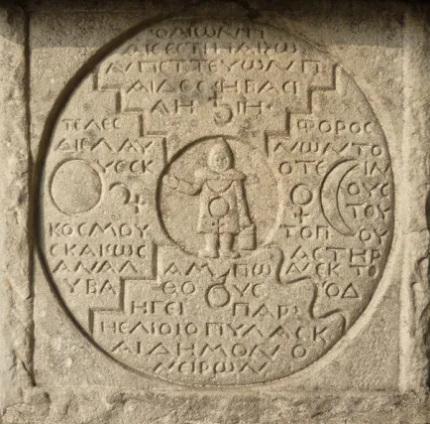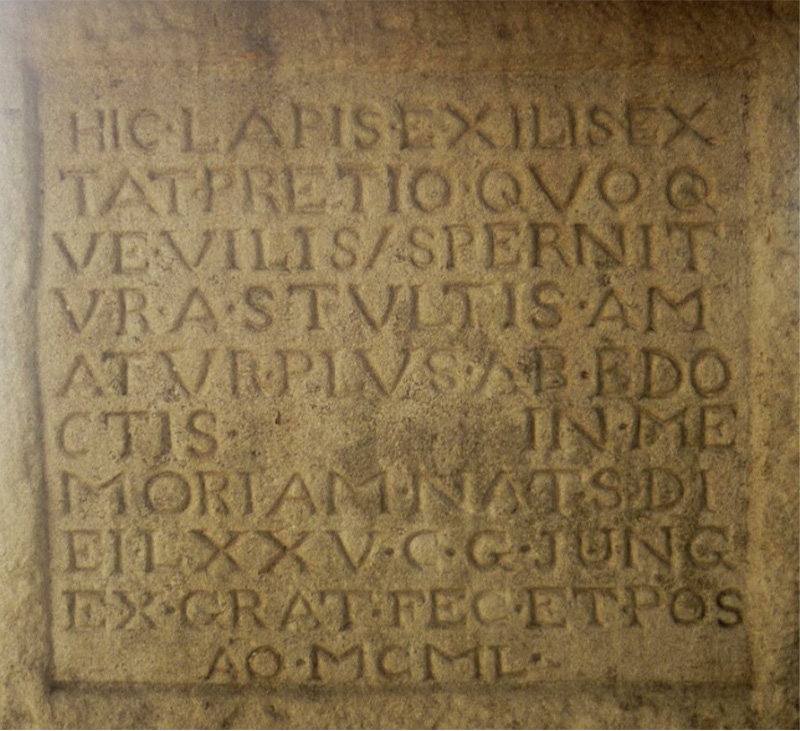Stone Carving at Bollingen: The Orphan

(Inscription:)
I am an orphan, alone: nevertheless I am found everywhere.
I am one, but opposed to myself.
I am youth and old man at one and the same time.
I have known neither father nor mother, because I have had to be fetched out of the deep like a fish, or fell like a white stone from heaven.
In woods and mountains I roam, but I am hidden in the innermost soul of man. I am mortal for everyone, yet I am not touched by the cycle of aeons.”
Memories, Dreams, Reflections
Page 227
The Orphan as the Philosopher’s Stone
The Stone was called “orphan” because of its uniqueness “it was never seen elsewhere” and it was said to be in the Emperor’s crown.
It was “wine-coloured” and sometimes shone in the night, “but nowadays it does not shine [any more] in the darkness.”
As Albertus Magnus was an authority on alchemy, he may have been the direct source both for Dorn and for Petrus Bonus.
“Orphan” as the name of a gem may therefore mean something like the modern “solitaire” a very apt name for the unique lapis philosophorum.
Apart from Dorn and Petrus Bonus, it seems that this name is found only in the Carmina Heliodori.
There it refers to the (homeless orphan) who is slain at the beginning of the work for purposes of transformation.
All these synonyms allude to the virginal or maternal quality of the prima materia, which exists without a man and yet is the “matter of all things.”
Above all, the prima materia is the mother of the lapis, the filius philosophorum.
Michael Maier mentions the treatise of an anonymous author Delphinas, which he dates to some time before 1447.
He stresses that this author insisted particularly on the mother-son incest.
CW14 ¶ 13 -14
Our starting-point for these remarks was the designation of the lapis as “orphan,” which Dorn mentions apparently out of the blue when discussing the union of opposites.
The material we have adduced shows what an archetypal drama of death and rebirth lies hidden in the coniunctio, and what immemorial human emotions clash together in this problem.
It is the moral task of alchemy to bring the feminine, maternal background of the masculine psyche, seething with passions, into harmony with the principle of the spirit, truly a labour of Hercules!
CW14 ¶ 35



